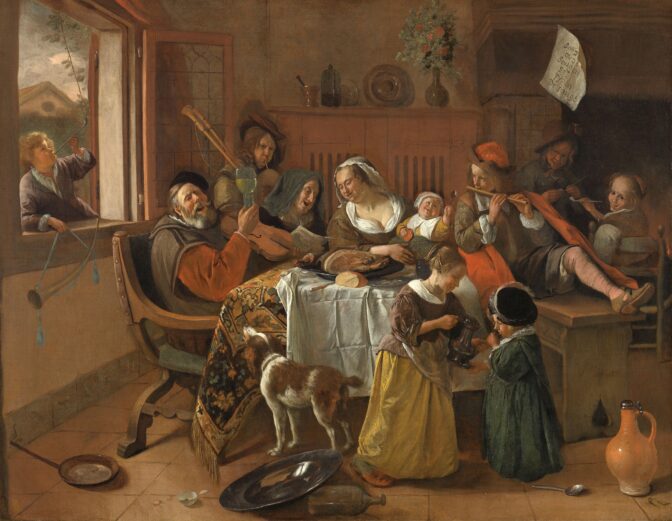A speelkind [literally: play child] is a child born out of wedlock to unwed parents; not the result of adultery.
Under Roman-Dutch law, a speelkind would inherit from his mother’s family just like a legitimate child, but would not inherit from the father’s side of the family unless explicitely named in a will. A child born from adultery, however, would inherit from neither family, not even when mentioned in a will.
Speelkinderen could be legitimized by a subsequent marriage of their parents. If the mother died before the father married her, the father could request to have the children legitimized. In that case, the child would inherit from his father, but not from his father’s kin unless they also agreed to the legitimization.
Local laws and customs often imposed further restrictions on people born out of wedlock, especially during the Middle Ages. In some areas, people born out of wedlock were not allowed to hold public office, or testify against a person born to married parents. By the 1600s, these customs had gone out of use and the circumstances of their birth were not held against persons born out of wedlock later in life.

The merry family, 1668. Credits: Jan Steen, collection Rijksmuseum (public domain)
Source
Simon van Leeuwen, Het Rooms-Hollands-Regt (Hackens, 1664), 28-29; digitized at Google Books (https://books.google.nl/books?id=UvlhAAAAcAAJ : accessed 25 January 2021).


Thank you for this post, Yvette.
Do court records of legitimizing exist back to the 16th century in Noord-Brabant? I have a rather infamous example of illegitimacy from about 1567 in my family, but the child, known later in life as François Prouveur, evidently did inherit from his paternal De Bever (from ‘s-Hertogenbosch) and maternal Cheris (from Antwerp) families. He had an official position, Kwartierschout van Kempenland and was quite wealthy when he died in 1651.
François Prouveur: https://www.wikitree.com/wiki/Willems-740